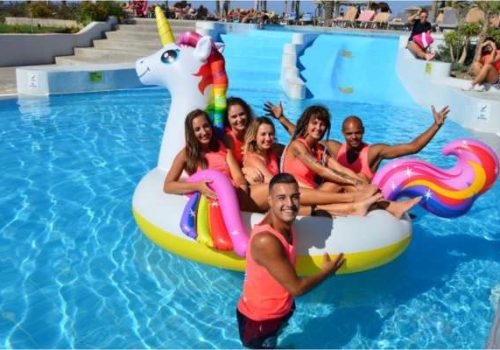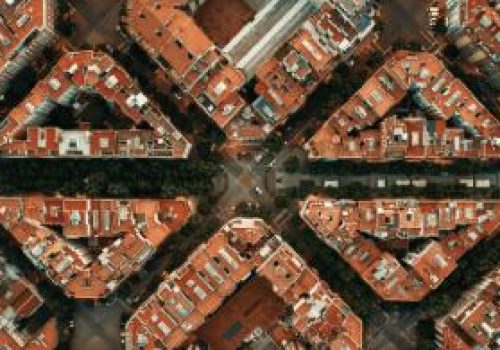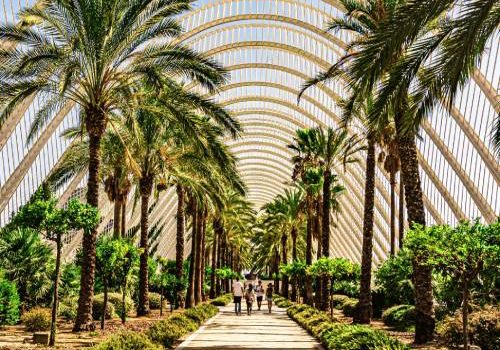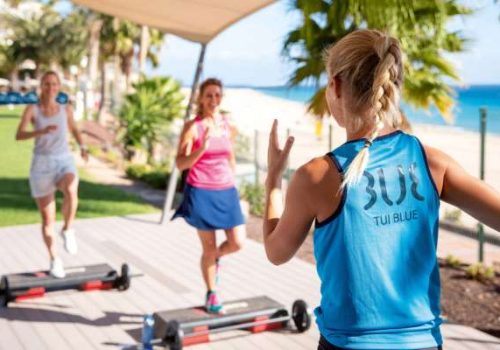Living and working in Valencia
Valencia is one of Spain’s largest cities and, at the same time, a Spanish municipality. The city is located on the Costa del Azahar on the Mediterranean Sea. Valencia is also known as the ‘orange city’. This is because Valencia’s many orange trees spread a wonderful fragrance through the city. It is also the birthplace of paella, one of the most famous dishes of Spanish cuisine. Valencia is the third city after Madrid and Barcelona, and for many it is also Spain’s favourite city. Living and working in Valencia is great because of the city’s cosy atmosphere, climate, lovely beach and finger-licking good food. Read on to discover all the pros and cons of living and working in Valencia!
Latest jobs in Valencia and Spain
- Hotel jobs, Tourism
- Cyprus, Greece, Spain
- Adventure jobs, Hotel jobs, Tourism
- Bulgaria, Croatia, Egypt, Greece, Italy, Spain, Turkey
- Customer support
- Spain
- Adventure jobs, Hotel jobs, Tourism
- Bulgaria, Croatia, Egypt, Greece, Italy, Spain, Turkey
- Adventure jobs, Hotel jobs, Tourism
- Bulgaria, Croatia, Egypt, Greece, Italy, Spain, Turkey
Work in Valencia
Working conditions in Valencia
There are many reasons why living and working in Spain is so attractive. The quality of life in Spain is generally very high. Here you enjoy many hours of sunshine a year, friendly people, many public holidays (14) and the Mediterranean lifestyle.
Although in most cities you work 8 hours a day and from 9 to 5, many places in Spain have a siesta. This siesta usually lasts from 14:00 to 17:00. So, depending on the region, people work between 09:00 and 14:00, and 18:00 and 21:00.
On this page you will find more information about living and working in Spain.
Salaries in Valencia
The minimum wage in Valencia is €1050 gross per month in 2022. In addition, the average salary in Valencia is €1318 in 2022.
You will find the best-paid jobs in Spain in the following sectors:
- The financial sector (€3,652.50 gross per month)
- The energy sector (€3,434.10 gross per month)
- Information technology and IT (€3,109.50 gross per month)
- The public sector (€3,100.80 gross per month)
Public holidays in Valencia
If you are going to work in Valencia soon, it is of course useful to already know what the public holidays are in Spain and Valencia and therefore when you are free. Below is a list of all public holidays:
- New Year’s Day: 1 January
- Epiphany: 6 January
- Maundy Thursday: March/April
- Good Friday: March/April
- Easter Monday: March/April
- Labour Day: 1 May
- Corpus Christi: 11 June
- San Juan: 24 June
- Assumption Day: 15 August
- Spanish bank holidays: 12 October
- All Saints’ Day: 1 November
- Constitution Day: 6 December
- Immaculate Conception of Mary: 8 December
- Christmas: 25 December
Work culture in Valencia
Many companies in Valencia practise siesta. Thus, employees start work early in the morning so they can have an extended lunch break (of 3 hours!) during the hottest hours of the day. It is then customary to have lunch outside. After siesta, Spaniards generally continue working until around 20:00/21:00.
Spanish companies have a hierarchical organisational structure. This means that there is a great distance between employer and employee and important decisions are always made by management. Own input is often not appreciated. It is also important to always address your colleague by his or her surname, unless he or she indicates otherwise.
Working in Valencia catering industry
Because Valencia is a tourist spot, there are also many hospitality jobs in the city. Especially during the summer months, there are many open hospitality jobs in Valencia. Think of positions such as receptionist, cook and waitress. Animator/entertainer in a hotel is also a possibility. In this fun and versatile job, you will organise activities and shows for the whole family.
Are you flexible, sociable and a real go-getter? And do you also speak several languages? Then a hospitality job in Valencia is perfect for you! Take a look at our vacancies page for a complete overview of all our hospitality jobs in Spain and Valencia.
Remote work in Valencia
Valencia is a super popular city to work remotely. Valencia has people working remotely from all over the world. Trading in your office for lovely sun-drenched streets and beautiful Spanish beaches. More than just a city, Valencia is a wonderful lifestyle where work and leisure come together.
For remote workers, there are an awful lot of accommodation options in Valencia. There are several co-working spaces scattered around the city, where you can work in a productive environment. Most coworking locations are in the hip Ruzafa district. For example, you can enjoy sitting down at café Artysana or Bluebell. Here you can enjoy tasty sandwiches and coffee while you work.
Another good location where you can reserve a spot is Wayco. A very popular coworking place with two locations in Valencia. Here you can collaborate with other remote workers to inspire and encourage each other. The internet connections there are fast and reliable, which is of course essential for remote working. Also nice is that in a coworking space you can easily connect with other remote workers, so you easily expand your network!
Finally, living and working in Valencia is very affordable, which of course makes it even more attractive to work remotely. The cost of essentials, such as rent and groceries, is lower than in many other European cities. This means you can enjoy dining out or other leisure activities more without worrying about your budget.
For more information on remote working in Valencia, including tips on housing, visa requirements, co-working spaces and local activities, visit the Surprising Valencia website.
Living in Valencia
Advantages of living and working in Valencia
In Valencia’s old town, you’ll find mostly old bars and paella restaurants. In the historical city centre you will find cathedrals, a beautiful park, impressive buildings and the city is also situated on the beach. Do you love shopping and lounging on the beach? Then living and working in Valencia is perfect for you!
Valencia is also considered a student city. Because of the many students, there is also a large supply of housing. So it is not very difficult to find accommodation in Valencia.
If you stay in Valencia in March, you will be able to enjoy the Spanish festival Las Fallas. This is a unique festival where the whole city is decorated with papier-mache sculptures.
Furthermore, Valencia is a pleasant but not too busy city and its infrastructure and facilities are excellent. In short, living and working in Valencia is a great experience!
Accommodation in Valencia
As we mentioned, it is fairly easy to find a room or flat in Valencia. Rooms and flats are mainly rented out furnished and the average price of a 1-bedroom flat in central Valencia is €775. For a similar apartment outside the city centre, you will pay an average of €567.
We can recommend the websites below for finding your own place in Valencia:
Algiros
There are many students in the Algiros neighbourhood. A fairly young neighbourhood therefore. This is also one of the cheapest neighbourhoods of Valencia. It is also full of nightlife and cheap eateries.
El Carmen
El Carmen is located in the old centre of Valencia. In this district, you will find beautiful street art on buildings. Moreover, everything is within walking distance: from shops and cathedrals to markets. The district consists of cosy streets and alleys and everywhere you can find a restaurant where you can have a cheap lunch and/or dinner.
Ruzafa
This neighbourhood is just about the hippest area in Valencia. It is full of hip restaurants and nice coffee shops. There are also some nice clubs and cocktail bars in Ruzafa. The streets here are just a bit wider and the buildings look a bit fancier than in the rest of Valencia.
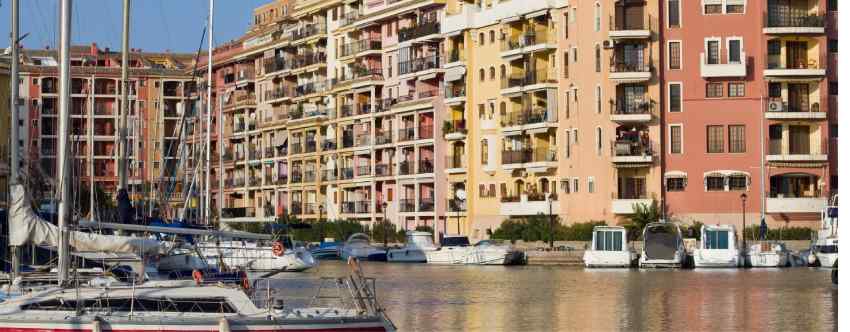
How does public transport work in Valencia?
Public transport in Valencia is well organised and you can move easily and quickly within and outside the city. For example, Valencia’s network consists of 5 metro lines, 4 tram lines, 60 bus lines, 6 commuter trains and 180 metropolitan bus lines.
How does the bus in Valencia work?
Regular buses in Valencia run every day between 06:00 and 22:00. From 22:00 you can travel on night buses. We recommend downloading the EMT Valencia App. This will allow you to see exactly when your bus will arrive and which bus will take you to your destination. Moreover, you can buy a bus ticket on this app.
The Valencia Tourist Card gives you unlimited use of public transport in Valencia for 24, 48 or 72 hours. You can also buy a single bus ticket (€1.50), buy a bus pass for €10.50 or buy a SUMA card with 10-ride tram, metro and commuter trains for €10. Make sure you have activated the bus pass or SUMA card before boarding the bus.
You can buy the bus pass at kiosks, EMT offices and tobacco shops and recharge it online via the EMT Valencia app. The SUMA card is also available at kiosks, tobacco shops and various ticket offices and vending machines. You can recharge this card via the RecargaSUMA app.
How does the metro in Valencia work?
The fastest and cheapest way to get around Valencia is by metro. The metro (green line 5 and red line 3) will take you from the airport to the centre of Valencia in 20 minutes. It is also good to know that the metro runs daily from 05:30 to midnight.
You can easily buy tickets at the metro station. Here you will find vending machines and sales counters where you can buy various tickets (single ride, 10-ride ticket, 60-ride ticket). A single metro ticket for zone A (the city centre) costs €2.50 (you pay €1 once for the ticket, then you pay €1.50 for a single). So make sure you keep the metro ticket as you can reuse and top it up again. Furthermore, a 10-ride ticket for zone A costs €8.60.
Eating in Valencia
Eating in Valencia is one big feast for your taste buds! The city is full of paella restaurants, but there are many more (Spanish) dishes to enjoy in Valencia.
Valencia has plenty of places to eat. From food markets to tapas bars and from trendy breakfast bars to cosy lunch cafés. We list some of the best food hotspots in Valencia below:
Restaurants in Mercado Colón
In Mercado Colón you’ll find Mi Cub for a tasty tapas lunch or drinks, Café Bocados for coffee & other treats and Pantalan 5 for a slightly lighter meal. Mercado Colón has two floors. If you look down from the second floor, you will see the Ma Khin Café where you can eat delicious Asian fusion food. You can also go to Momiji for delicious Japanese food. These are just a handful of restaurants you can find in Mercado Colon.
Beak & Trotter
A restaurant where you can mainly enjoy BBQ and beer. Not a restaurant where you come for fine dining, but rather pulled pork, pulled chicken, chicken wings and special fries with bacon and cheese. As a vegetarian, you can order the pulled mushroom burger. This is the perfect place if you want to take a break from tapas and paella.
La Pepica restaurant
La Pepica is a household name in Valencia. The restaurant became famous thanks to Ernest Hemingway, the American writer (1899-1961) who once won the Nobel Prize for Literature. Hemingway spent a lot of time at this restaurant. Therefore, the walls of the restaurant are also full of Hemingway’s photos. Today, the restaurant is known for its history. For tourists, this is quickly becoming a hotspot. Outside on the promenade, the menu is on a board: from all kinds of paella to great tapas and fish dishes. So La Pepica is just a bit more touristy and just a bit pricier, but Hemingway’s home in Valencia is a place you just have to have seen.
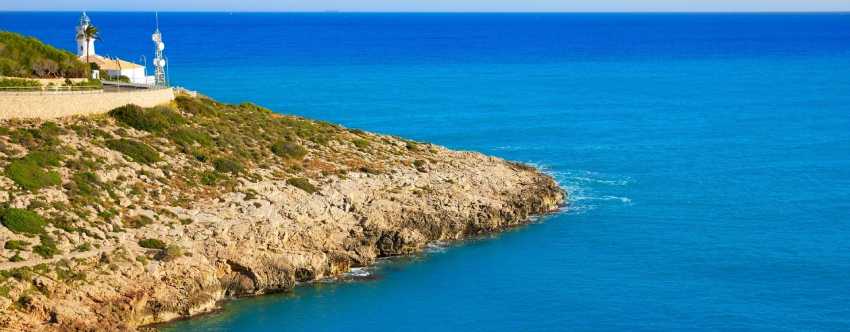
Nightlife in Valencia
Nightlife in Valencia is very lively and people dance until early in the morning when you can hear the birds singing again.
Will you choose an atmospheric club by the sea, an underground club or a cosy bar in the city centre? From swinging Latin beats to pumping house and techno music, there is something for everyone in Valencia. Here are some tips:
PICCADILLY (NEIGHBOURHOOD: RUZAFA)
This club in Ruzafa is open until 07:30 in the morning! It is a club with different rooms and music styles. From electro and house to funk and rock. What is also very fun and unique is that Piccadilly has a silent disco room. The audience dances with headsets on! Incredibly funny to see. The crowd that comes to this club is very open-minded with some extravagant people here and there. A unique joint, then!
RADIO CITY (DISTRICT: CIUTAT VELLA, CITY CENTRE)
Radio City is a very nice and diverse place. In fact, you can go here for music, dance and theatre. At weekends, you can dance to 70s to dance and hip-hop music. But live performances often take place on Saturdays as well. The music here is just a bit more alternative than in the average clubs. Every Tuesday there is a flamenco performance and if you think you can sing a good tune yourself, you can show off your vocals at the open mic on Thursdays.
HIGH CUBE (DISTRICT: POBLATS MARÍTIMS)
Located near the beach and the port, High Cube is only open during the hot summer months. The special thing about High Cube is that it looks like this club floats on water. In summer, many different types of DJs play here, so you can dance the night away.
The cost of living in Valencia
Before you start working in Valencia, it is of course useful to know how high or low the cost of living in the city is. To give you an idea, we have listed some examples in this section. Valencia is a relatively cheap city. For instance, consumer prices in Valencia are as much as 37% lower than in London, and renting a flat in Valencia is generally almost 62% cheaper than in London.
Moreover, shopping in Valencia is about 24% cheaper than London and restaurant prices in Valencia are over 37% lower than in Amsterdam.
A 3-course dinner for 2 at a mid-range restaurant costs an average of €80 in Amsterdam, while in Valencia you’ll get almost half the price. Furthermore, a 0.5-litre beer in a restaurant/bar in Valencia costs only €3 and a capuccino costs an average of €2. A cinema ticket costs around €7.50 and a gym membership costs an average of €37 in Valencia.
The landscape and nature of Valencia
Looking for a place to relax in nature? Then the Valencia region is the place to be! Apart from the fact that Valencia has beautiful beaches and a vibrant nightlife, the city is also located in beautiful surroundings with lots of nature. Indeed, the area possesses more than 20 natural parks, over 280 hiking trails with a length of about 4,000 kilometres and a diversity of flora that attracts some seven million visitors to the mountains every year.
One of the best ways to get to know the area is to take a nice hike. While hiking, you can enjoy the beautiful nature the region has to offer. Moreover, the Valencia region is a destination for bird migration, so you can also spot many different types of birds.
One tip is to follow the GR7. This is a route in one of the most beautiful natural landscapes in the Valencia region. It is a long trail of more than 500 kilometres, from north to south through the three provinces in this area (Castellón, Valencia and Alicante).
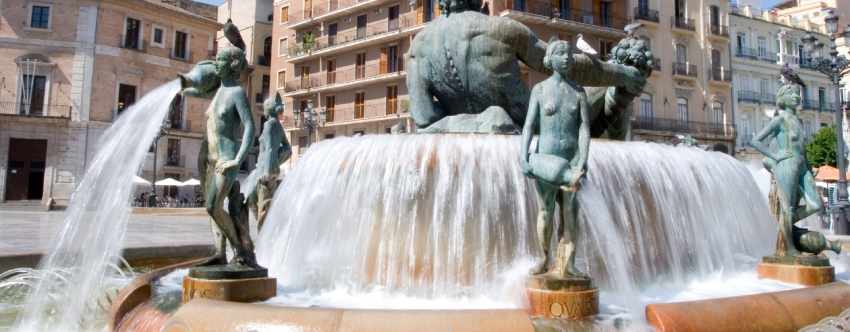
What not to miss in Valencia
Eixample
The Eixample district is where authentic Valencia is everywhere. The old streets and alleys take you back to the Art Nouveau era. Large chains alternate with cosy shops, chic shops and boutiques. The ‘Valencia Estació del Norte’ train station is also in this district and is considered a real landmark. The inside of the train station is decorated with many mosaics and ceramics. The Valencia Estació del Norte is close to Plaza de Toros and City Hall.
Beaches
The beach ‘Playa Malvarossa’ is right next to Valencia’s port and there is plenty to do. For example, you will find several catering establishments where you can order delicious dishes. Of course, there are more beaches around Valencia. The beach ‘Playa de El Saler’, for example, is located just outside the city.
Football stadium
Valencia’s current football stadium is ‘Estadio Mestalla’. There is room for over 52,000 people to attend a match. As the stadium is fairly dated, work is now underway on a new home for the Valencia CF club. When finished, this stadium will have space for over 75,000 guests.
Plaza de Toros
Between 1850 and 1860, Plaza de Toros ‘square of the bulls’ was built. Bullfights have taken place in this large ‘bullring’ for many years. This arena has similarities to the Colosseum in Rome. Bullfights are still held there today, but it is also increasingly used for concerts and other festivities.
Cathedral of Valencia
Valencia’s magnificent cathedral was built between 1262 and 1356. Different styles have given the cathedral an impressive appearance. Baroque style and Gothic and Romanesque influences are clearly visible. Valencia’s cathedral is dedicated to the Blessed Virgin Mary.
L’Oceanogràfic
This oceanium is located in the cultural and scientific centre ‘Ciutat de les Arts i les Ciències’. The aquarium consists of nine water towers containing copies of various oceans. There are seals, dolphins, water birds, penguins, pelicans, walruses, and different species of sharks.
Plaza del Ayuntamiento
This square is Valencia’s most important and central square and is also known as a ‘town hall square’. The old prestigious buildings that line this beautiful square combined with the magnificent fountain give it a lot of prestige. In the evening, this square is illuminated and it is a lovely place to hang out.
Health care in Valencia
When you start living and working in Spain, you are automatically insured and have access to public healthcare in Spain at all times.
When you work in Spain, social security contributions are automatically deducted from your salary every month. This funds public healthcare in Spain. Public healthcare in Spain is of good quality and comparable to healthcare in England.
Although you are automatically insured for health costs, it is important to apply for a Social Seguridad number at your local Tesoreria General de la Seguridad Social. Make sure to bring a valid ID, a copy of your employment contract and a completed TA1 form.
Once you have your Social Seguridad number, you can visit your local health centre (Centro Salud) to apply for a health care card there. This will allow you to prove everywhere that you are entitled to public healthcare in Spain.
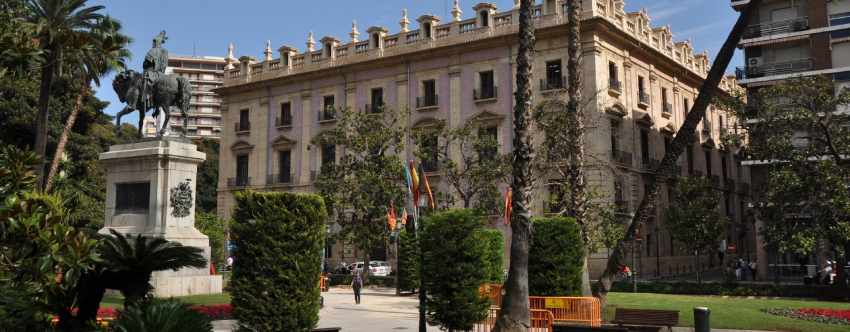
Safety in Valencia
Valencia is a relatively safe city and there is a friendly atmosphere. However, there are pickpockets active on the streets and public transport in Valencia. Therefore, pay extra attention to your belongings in public transport, the shopping streets and special tourist sights and hotspots such as Barrio de Carmen and Plaza de la Reina.
What do you need to arrange if you are going to work in Valencia?
Apply for a NIE number in Valencia
Are you planning to live and work in Spain for more than 3 months? Then you need to register in Valencia. First, you will apply for a NIE number (a tax identification number for foreigners in Spain). You will need the NIE number you receive for many different things. Think about buying a house or car, filing tax returns, taking out a phone subscription and opening a Spanish bank account.
Once you have this number, you can make an appointment at your local police station in Valencia to register in Valencia. You will also need a valid identity document and a rental contract for this purpose .
Opening a bank account in Valencia
It is also wise to open a Spanish bank account so that your boss can easily transfer your income. To open a bank account in Valencia, you will need a valid ID, proof of address and your NIE number. In addition, many Spanish banks also ask for your employment contract.
Examples of major banks in Valencia include Deutsche bank, Triodos Bank Valencia, Andbank España and CaixaBank.
Also take a look at the frequently asked questions on our home page. Here you will find even more information about working abroad in general.

